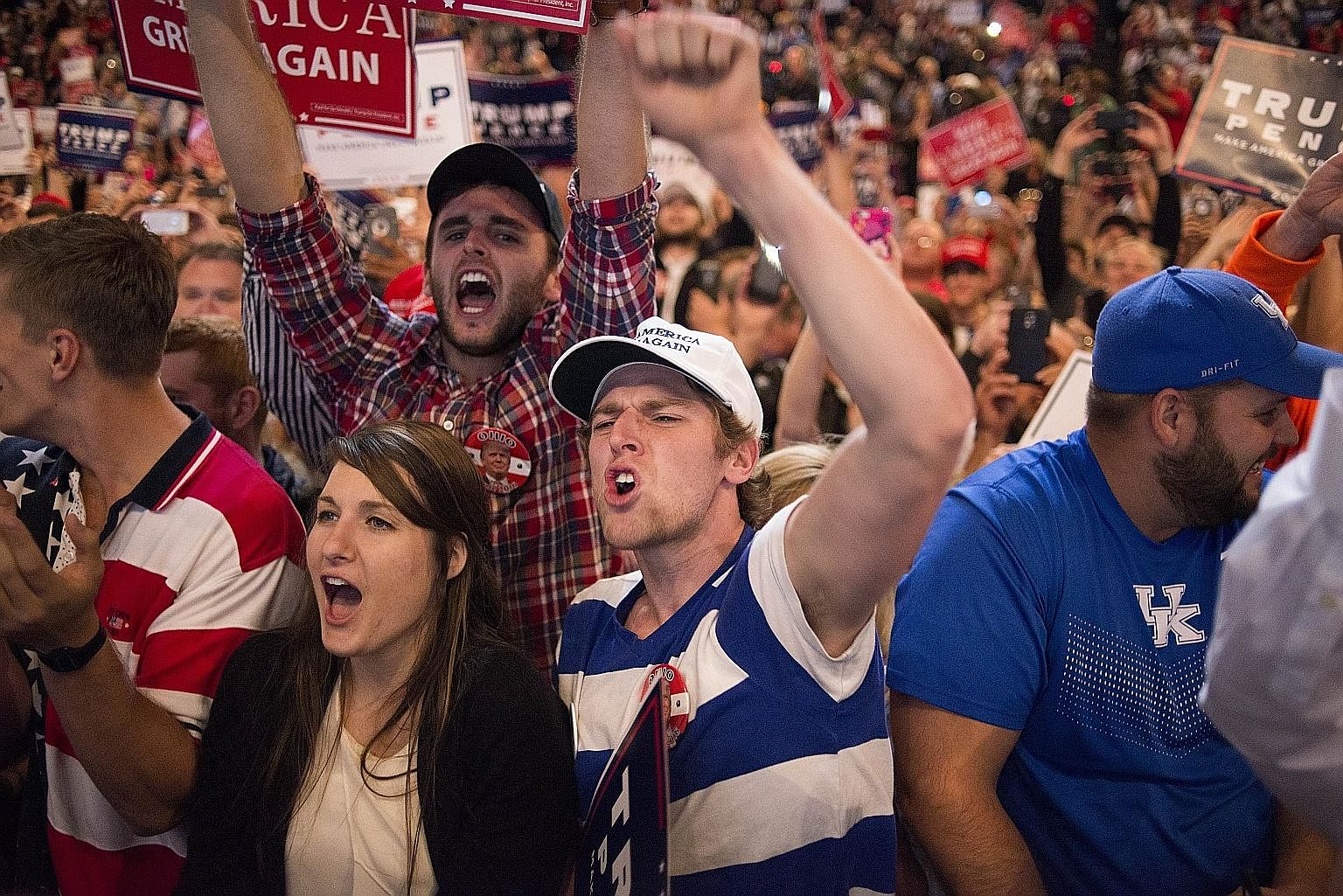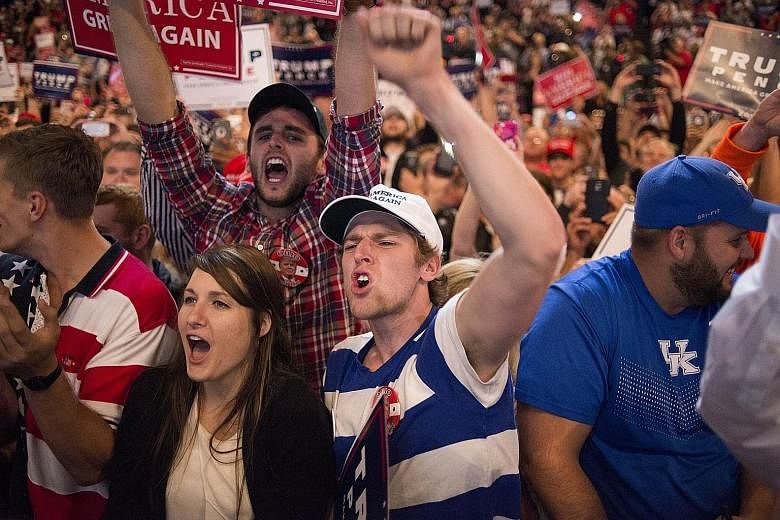"I can't wait for this election to be over'' is a common refrain in the US capital.
It has been a particularly exhausting election season, much like the sort of reality TV show that once made Mr Donald Trump famous and left one wondering what the next episode would bring.
The rhetoric has been unusually corrosive, unearthing old social, racial and geographic fault lines, and leaving many Americans and outsiders wondering at the future of a society that, under pressure, seems at times to be on the verge of war with itself.
To a journalist who has covered well over a dozen elections in five Asian countries, it is all familiar. Several elements in the US election echo those in elections in far younger democracies, and especially in recent years - the right-wing strongman rhetoric, the majority vote bank politics, the partisan media, the insults, and the urban-rural divide.
All of these are amplified in a virulent, toxic and largely fact-free, anti-intellectual social media environment in which seeming armies of loyalists viciously attack any alternative narrative.
The angry online discourse has become a near-global phenomenon, common in Thailand, the Philippines, India, Britain and the United States. Underlying it is re-emergent nationalism, and dissatisfaction with the status quo represented by conventional ruling elites.

Driving much of the news cycle in the US is Republican Party candidate Mr Trump, the 70-year-old real estate tycoon who is trailing in the opinion polls but still has 12.7 million Twitter followers compared with Democrat Party nominee Hillary Clinton's 9.98 million.
Like Mr Trump, Thai telecoms billionaire Thaksin Shinawatra was an outsider who rose to political contention as a businessman who spoke bluntly, thought out of the box, and unashamedly used the law to his own business benefit. He became prime minister in 2001, and soon after being re-elected to a second term, was kicked out of office by the army in 2006.
Like Mr Trump, Philippine President Rodrigo Duterte, 71, who came to power this year with sweeping public support, notoriously says whatever he feels at the time, seemingly revelling in unleashing a hashtag flood that rages through social media one day, only to be replaced by a new rage the next.
Also like Mr Thaksin, Mr Duterte, and Indian Prime Minister Narendra Modi, Mr Trump is not from the traditional power elites of the capital. Mr Thaksin is from Chiang Mai in the north, Mr Duterte from Davao in the south, and Mr Modi from Gujarat state in the west. Mr Trump is from New York - but not from snooty Manhattan; his origins were across the East River in Queens.
As Mr Trump's #MAGA or "Make America Great Again'' slogan implicitly assumes America has lost its greatness, Mr Modi in 2015 made the debatable claim that before his rise to power one felt "ashamed of being born Indian".
Mr Trump also has something else in common with Mr Duterte: US Republicans, like Filipinos, knew quite well whom they were voting for when they propelled him to the head of the field to become the party's candidate.
Mr Duterte was known for his strong-arm methods in Davao, the city in Mindanao where he was mayor for many years. Mindanao is a land of savage politics; you do not survive long at the top by being a nice guy.
But just as Mr Duterte's methods were in context, Mr Trump in the context of then crime-ridden New York took out full page ads advocating the death penalty in the wake of a brutal rape in Central Park in 1989 that saw five men wrongfully convicted of the crime.
His tough talk continues today. But he is not alone; last Friday Vice-President Joe Biden, while campaigning for the Democrat Party, said of Mr Trump: "The press always asks me, don't I wish I were debating him? No, I wish we were in high school, I could take him behind the gym."
Meanwhile in Cambodia, Prime Minister Hun Sen relishes the strongman label. He has something in common with both Mr Trump and Prime Minister Prayut Chan-o-cha, the no less nationalist boss of Thailand's military regime: all three regularly berate their critics, including the media. Journalists covering political rallies - especially Republican ones - in the US have faced hostility from Mr Trump's supporters.
In another aspect, the US election resembles that of Thailand's last decade of political conflict: a rural-urban divide. Polls have consistently shown Mrs Clinton leading Mr Trump in cities, while the reverse is true in rural areas. Like Mr Thaksin, Mr Trump strikes a chord among a rural electorate resentful at urban and suburban elites.
And in yet another parallel with elections in far less advanced economies with less freedom of speech and less history as functioning democracies, there is Mr Trump's questioning of the system itself by raising fears of vote rigging - and analysts worrying over election violence.
Coming from Asia it all seems familiar.
This election is seeing the US unplugged, and it is not much different from anywhere else.

